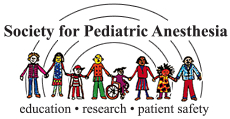CR2-186
A Negative Pregnancy Test in a Pregnant Patient
Dziamski A, Loveland Baptist L, Henry A
Children's Hospital of Wisconsin, Milwaukee, WI, USA
Introduction:
We present an ethically challenging case of a teenager who had a negative urine pregnancy test who underwent an interventional radiologic procedure under general anesthesia. She notified the radiologist one week later that she was in fact pregnant. There are significant concerns with a minors ability to consent for a pre procedural urine pregnancy test, possible false negative pregnancy tests and the effects of anesthesia and radiation on a developing embryo and fetus.
Case report:
J.D. is 19 year old female who presented for an IR embolization for an arteriovenous malformation in her left index finger. She was otherwise healthy and had a urine pregnancy test in preop which was negative. She did not receive any midazolam. She underwent general anesthesia with a supraglottic airway device for just under 1 hour and 45 min, during which time her arteriovenous malformation was embolized, under fluoroscopic guidance centered on her hand. She also received a dose of ketorolac and ondansetron intraoperatively. She had no complications post operatively and was discharged the same day to home. About one week later J.D. called back to the clinic stating she had taken a urine pregnancy test with a positive result and she was concerned about the effects of her recent procedure to the fetus. Her radiologist counseled her that the radiation exposure to her abdomen was minimal. At a follow up visit 1 year later J.D. had her infant child with her.
Discussion:
We present this case report to further discuss the limitations of pre operative urine pregnancy testing, anesthesia and radiation during pregnancy. Consent laws vary from state to state regarding status as an emancipated minor. In WI, where this case occurred, emancipated status does not take effect until the minor has given birth. Although this patient was more than 18years old it is easy to imagine a similar scenario with a 17year old.
Additionally, multiple medications used for induction and maintenance of anesthesia have potential deleterious effects on the developing fetus. Benzodiazepines, non steroidal anti-inflamatory medications, anti-emetics are all linked to potential congenital anomalies. Inhalational anesthetics are potentially associated with increased miscarriage rate. Radiation exposure during pregnancy is associated with a range of effects from growth restriction to loss of pregnancy. Counseling a minor who is unexpectedly pregnant, whose parents were previously unaware of the pregnancy, and who had significant exposure to agents is a large moral concern.
References:
McCollough, Cynthia H., PhD, et al. "Radiation Exposure and Pregnancy: When Should We Be Concerned?" RadioGraphics 27, no. 4 (July-August 2007). http://www.ubccriticalcaremedicine.ca/academic/jc_article/Radiation%20Exposure%20and%20Pregnancy%20(Apr-30-09).pdf
"A Minor's Right to Consent to Treatment and Authorize Disclosure of PHI." November 2015. https://www.uwhealth.org/files/uwhealth/docs/pdf6/minors_legal_grid.pdf.
Top











